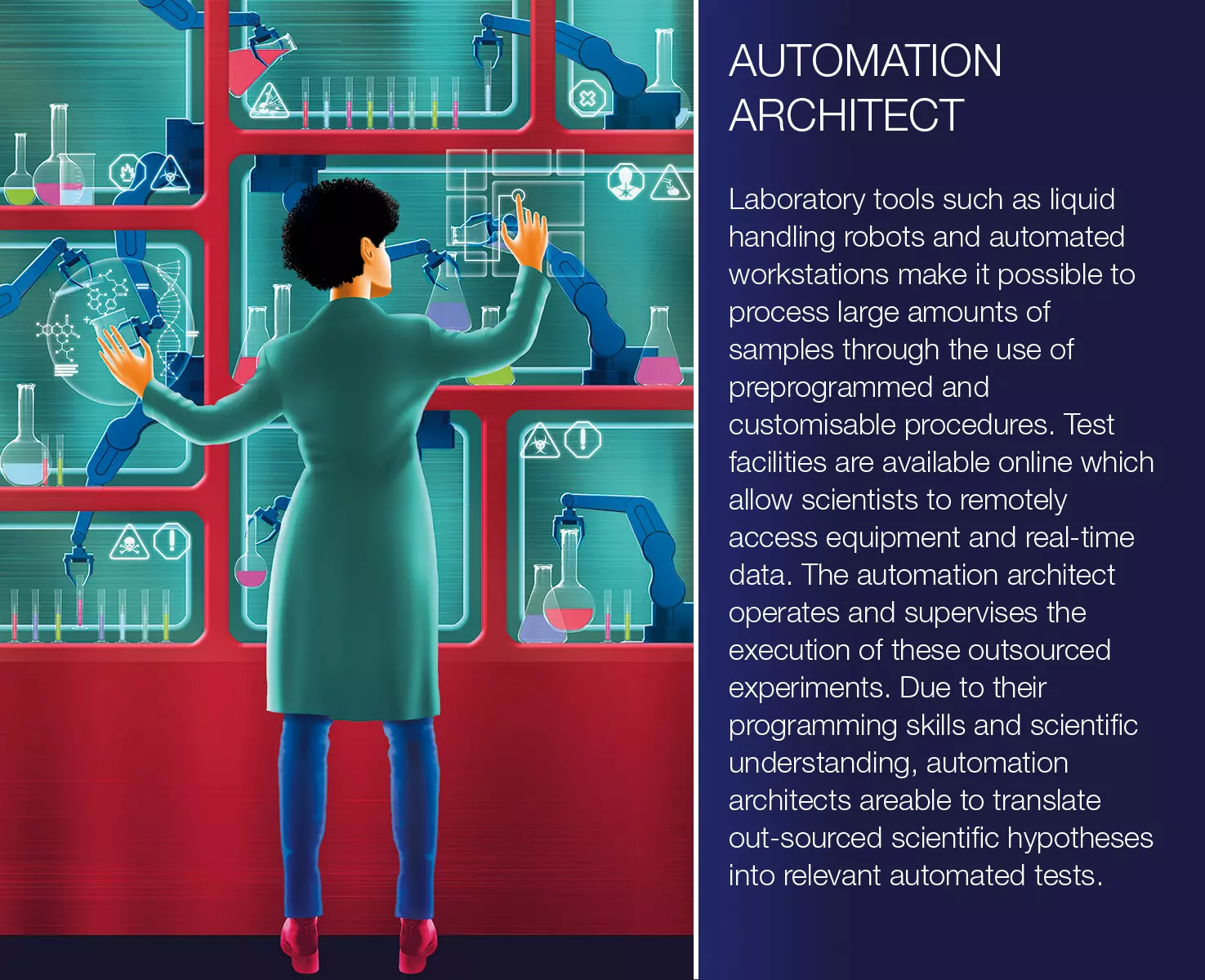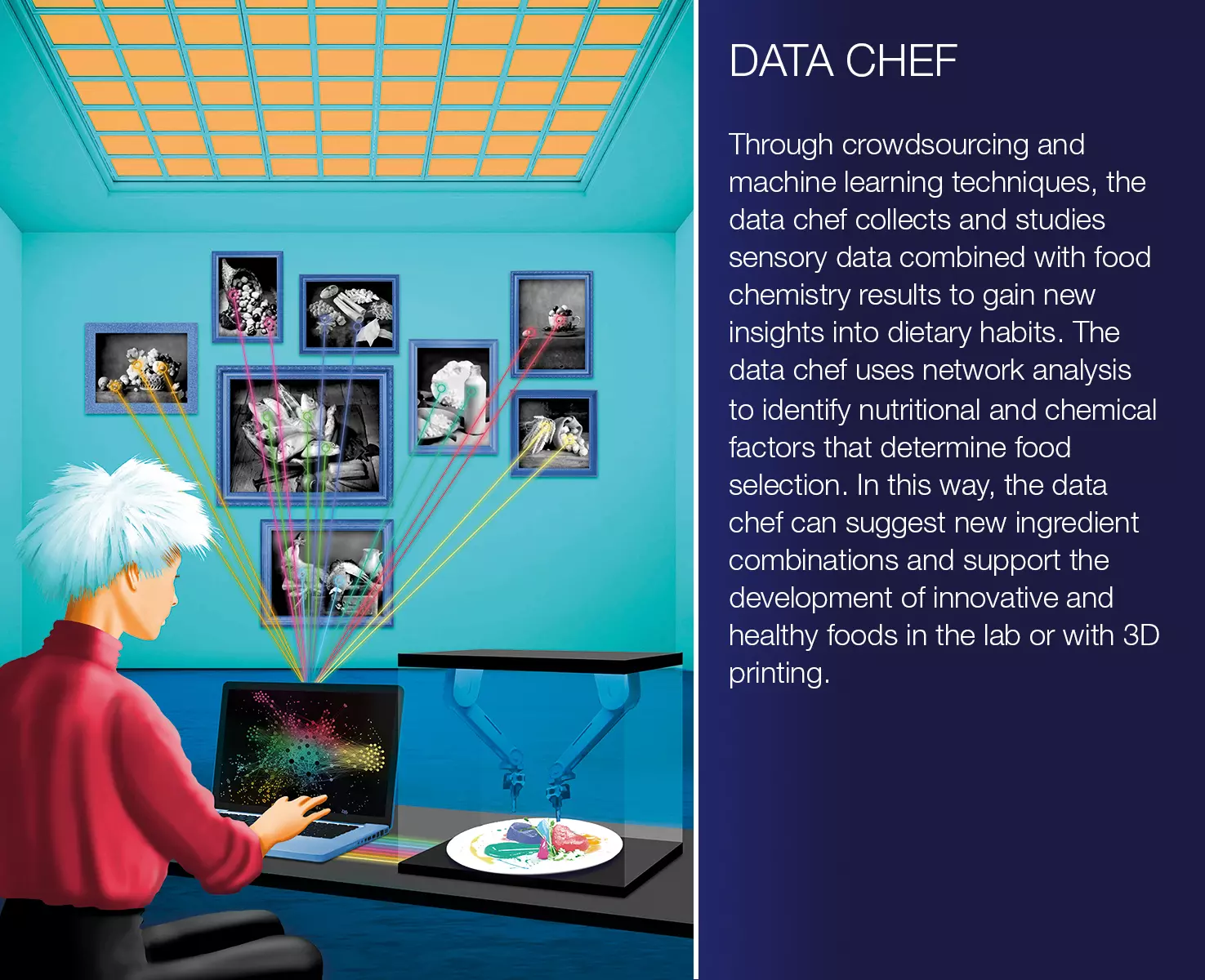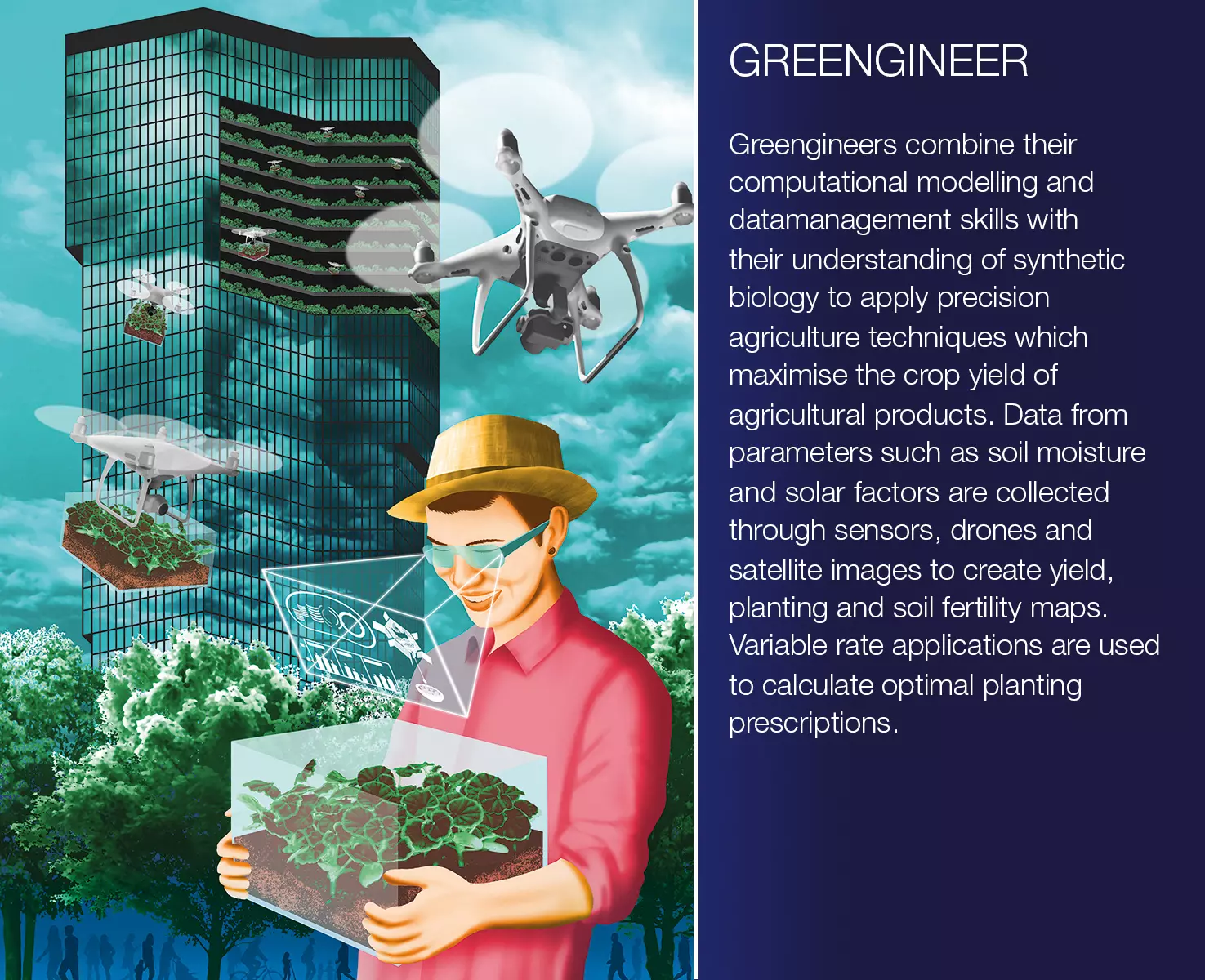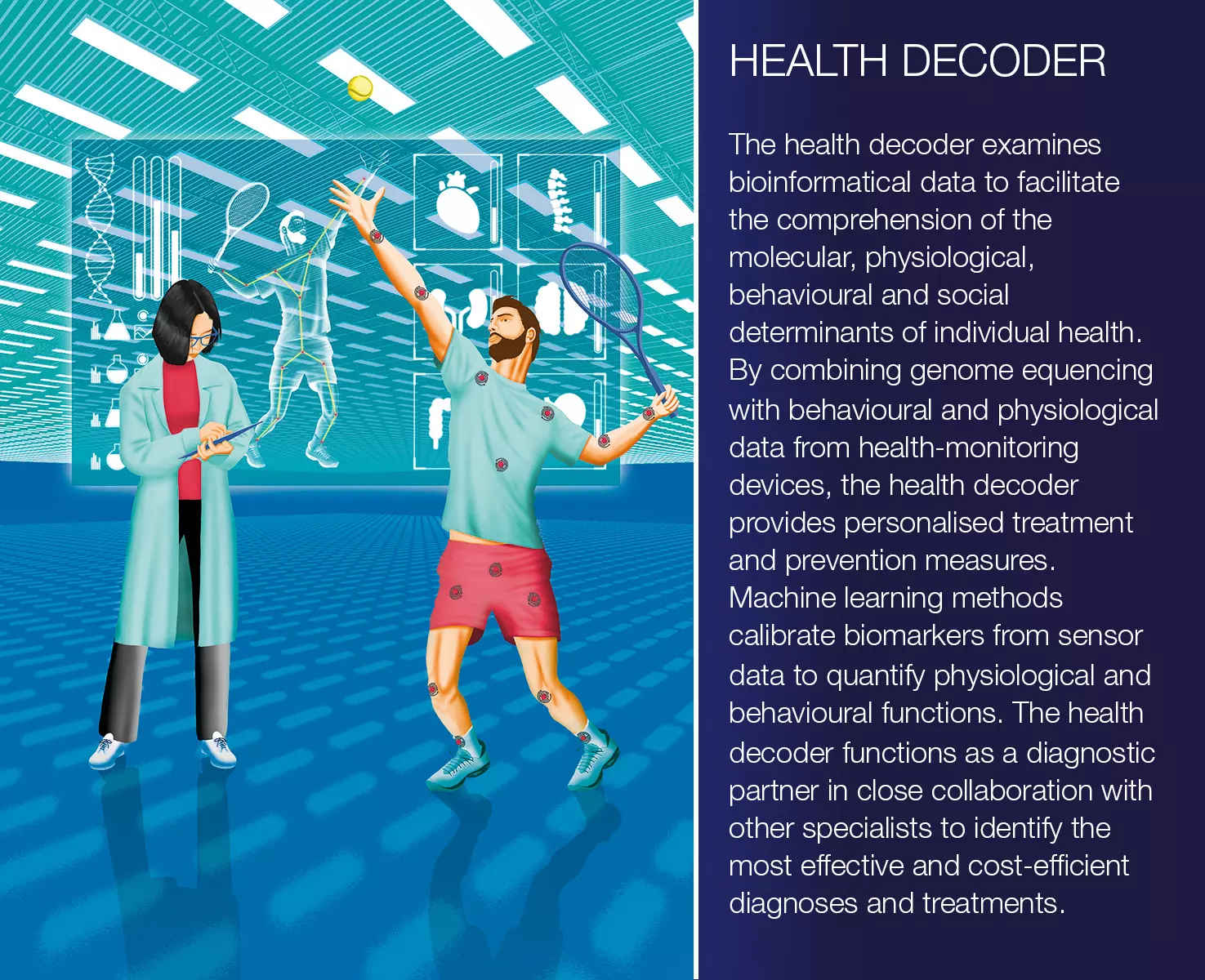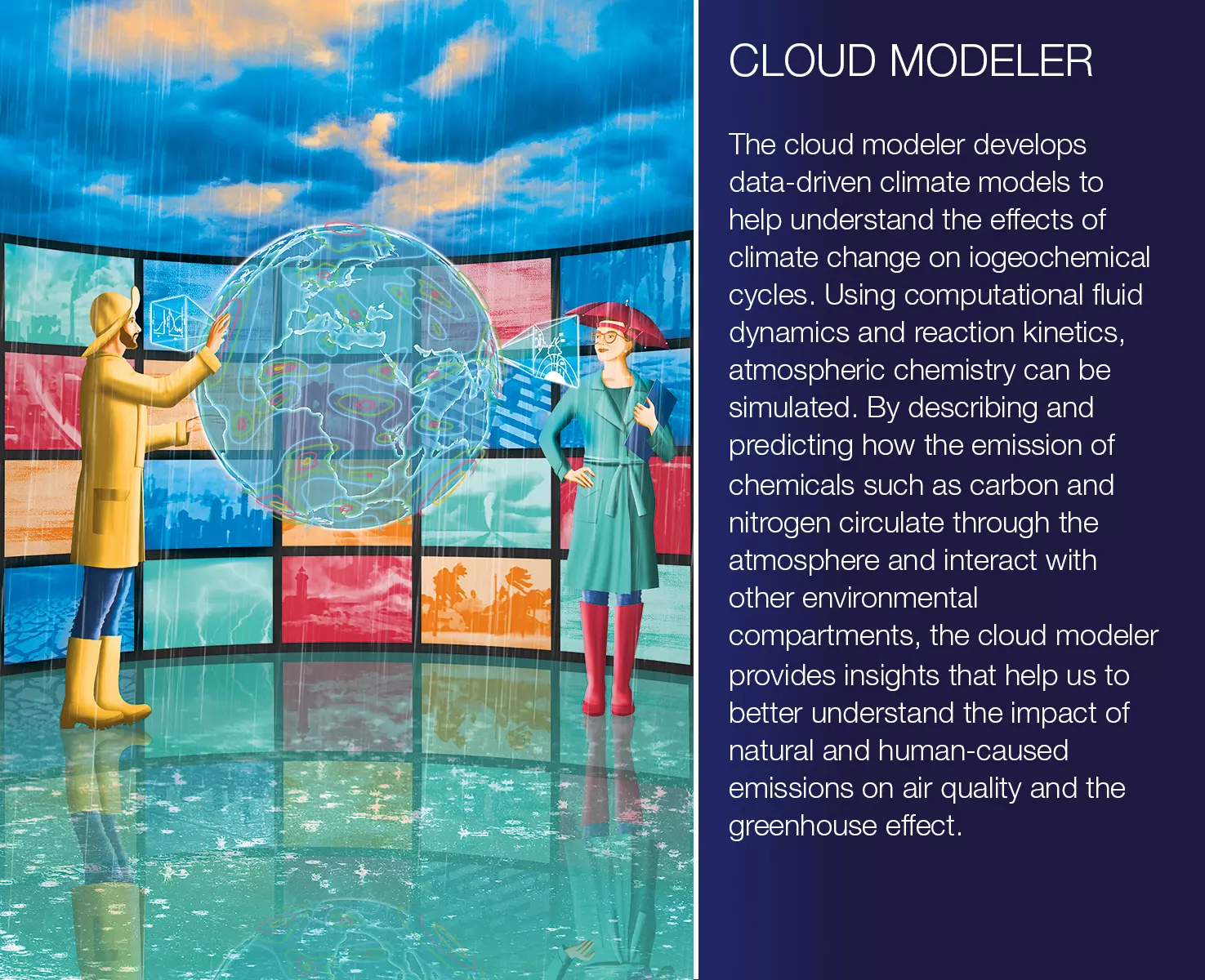Future Jobs in Digital Life Sciences
Digital transformation is a major driver in the global economy. Professions with digital skills are becoming increasingly important. We have analysed the extent to which digitalization is changing the life sciences. To this purpose, we identified current trends and consulted partners from science and business.
Vision of the Future
In cooperation with the Think Thank W.I.R.E. we have visualized the skills of tomorrow in five thematic areas:
CONVERGING DISCIPLINES AND NOVEL TOOLS
Advances in genetic engineering, robotics, artificial intelligence and data analytics are empowering life scientists with a growing set of tools for modelling and modifying the building blocks of life. These developments can be summarised as seven drivers of change:
- Miniaturisation
- Automation
- Virtualisation
- Additive Manufacturing
- Artificial Intelligence
- Deciphering Nature
- Self-Organisation
Expertise
The expertise that is in demand right now and for the future can be summarized with the following key words:
- ARTIFICIAL INTELLIGENCE: Machine Learning, Deep Learning, Advanced Analytics
- MODELLING AND SIMULATION: Dynamical Systems, Multiphysics, Optimisation
- MANAGING COMPLEXITY: Algorithms, Dynamic Programming, Data Engineering and Data Visualisation
- INTERDISCILINARITY: Agile Methodologies, Intercultural Competence, Communication in Science
- DIGITAL ECOSYSTEMS: Research Management, Business Models, Ethics and Legal
Our Master’s programme in Applied Computational Life Sciences lays the foundation for a career in those rapidly developing fields. As a graduate of our programme, you will be able to enhance your Bachelor's degree with relevant digital skills and to shape the digital future!
Return to the main page: Master in Applied Computational Life Sciences
Open the brochure on this topic: Future Jobs in Digital Life Sciences(PDF 12,0 MB)
